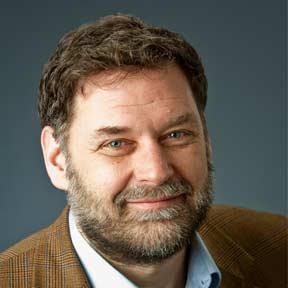
Bill Thomas, MD, has spent much of his adult life confronting long term care professionals about the way they do business.
Now, he wants them to help him confront American society.
“There has to be a real social, cultural context of aging,” he tells Provider. “And this is something that our field has not done a good job with.”
Rethinking Attitudes
Thomas’ latest book, “Second Wind,” argues that America has to rethink its attitudes—right down to single words in a single sentence—about aging, death, and dying. And he thinks long term care professionals could have a lot to say.
“I’m sort of retelling the story of the post-war, baby boom generation,” he says of the latest effort. “We all think we know the story because we’ve all been exposed to the youth-oriented side of the culture. You know that story without me saying a word. But what if the most exciting and challenging chapter isn’t 50 years behind us, but 10 years in front of us?”
Before that can happen, though, long term care professionals have to tell their own story to the larger world, Thomas says.
“The question is—assuming you want to change the conversation or the assumptions—how do you do that? My argument is, you have to take control of the larger narrative. You have to offer an explanatory narrative that puts aging and development in the same box.”
The problem is, too many providers think that “aging” means the same thing as “decline,” Thomas says.
“The concept that I use in the book is establishing this idea of elders and elder-hood as the key component of intergenerational reciprocity,” he says. “That sounds like a mouthful, but we need elders and elder-hood to support the full range of intergenerational interdependence. When people cling to adulthood, they disrupt the sort of layers of interdependence that we need.”
Thomas has recently gotten some help on this point from German researchers led by Michael Ramscar. Running sophisticated computer models and zeroing in on lazy assumptions in vocabulary tests, Ramscar and his colleagues argue that the idea that our brains slow down as we age is a “myth.”
“We hope this can change,” Ramscar said in laying out his team’s findings. “Population aging is seen as a problem because of the fear that older adults will be a burden on society; what is more likely is that the myth of cognitive decline is leading to an absurd waste of human potential and human capital.”
Embracing Elders
Such findings are music to Thomas’ ears, but he says the word must spread. If he’s successful, frontline workers will start talking about (and thinking about and believing in) their “partnership with your grandmother,” Thomas says.
The frontline worker will talk about “supporting your grandmother and—listen, this is the key—being supported by your grandmother,” Thomas adds.
“Your grandmother is seen as something who is beneficial and worthy, in her own terms. I just want a language that’s a lot more balanced.”
As difficult as this may seem, Thomas says the way has already been shown by a previous generation of scientists, thinkers, activists, and caregivers who were worried about what they were seeing at the opposite end of the development spectrum. Forty years ago, childhood wasn’t really its own concept.
But then a group of activists, scientists, and advocates raised people’s consciousness. “They really framed early childhood as a rich, complex time of development,” Thomas says.
“They’ve done masterful work on that. I mean, early childhood development—it’s almost like one word. If I was to stand on the street and ask people about their feelings about early childhood development, they’ll say, ‘Oh, yeah, I think it’s great. It should be supported.’
"We haven’t done that in aging.”